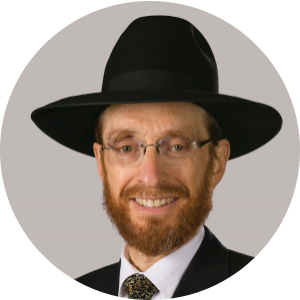The Hat, the Help, and the Hope

It all started with a hat. Well, not really. But that, at least, is how a couple from Flatbush presented it to me when they sat in my office almost 30 years ago.
Ezra and Rechy Rosen (not their real names) were still reeling from the altercation Ezra had the previous week with their 16-year-old son, Aryeh. It seems that as father and son were about to leave for shul Friday night, Aryeh announced he was planning to daven without his hat, as some of the other mispallelim in their shul did.
“But we wear hats when we daven,” Ezra declared, drawing a line in the sand.
The standoff quickly escalated and before anyone could defuse the confrontation, it exploded into fisticuffs.
Aryeh refused to meet with me. “I don’t have any problems,” he told his parents. “If you do, then you speak with the shrink.” So they did.
From that point on it was all downhill. Aryeh was not considered “at risk” or OTD because those terms had yet to be coined. If they had, Aryeh would have been a poster child for both.
First it was tzitzis. Then tefillin. And when Aryeh stopped wearing his yarmulke, his parents had just about given up all hope that their son would ever come back to Yiddishkeit.
Ezra was a no-nonsense CPA who had been raised by authoritarian parents he imitated in raising his own four children. Rechy was the daughter of Holocaust survivors who saw eye to eye with her husband when it came to parenting. Nevertheless, both were open to recalibrating their relationships with Aryeh. And both learned to apply the maxim of Chazal, “Tafasta merubah lo tafasta” (Rosh Hashanah 4b) in their day-to-day interactions with him. They also learned (the hard way) the wisdom of Chazal who advised, “Always push away with the left [weaker hand] and bring close with the right [stronger hand], not like Elisha [Hanavi] who pushed away [and rejected] Geichazi with both of his hands” (Sanhedrin 107b).
After three years of Ezra and Rechy meeting with me on and off for parental guidance, and their concurrent attendance at a support group for parents of adolescents who were acting out, their son gradually inched back to Yiddishkeit. Aryeh eventually married a Bais Yaakov girl with a similar history. Today, they are raising their family in an out-of-town Torah community, where their children attend mainstream yeshivos and Bais Yaakovs.
The inspiring case history of the Rosens does not end there, however. Just about the time that Aryeh was turning his life around following his chasunah, his younger sister, Faigy, contacted me, asking for an appointment. She was working as a graphic artist and living in her own apartment at the time.
“I know you’ve worked with my parents in the past,” Faigy began at our initial consultation. “When my older brother was having his issues with my parents, yours was a household name in our home. So that’s why I wanted to meet with you.”
Faigy got straight to the point of her visit. She informed me that since she moved out of her parents’ home, she was no longer frum, but she had not revealed her new lifestyle to her parents. In fact, whenever she came home to visit, she pretended that she was still frum. After two years of this charade, she was unwilling to continue living a lie.
“Sounds like your mind is made up,” I observed aloud. “So why did you want to meet with me?”
“I want to break the news to my parents here, in your office,” Faigy explained matter-of-factly. “I realize they will be devastated, and I’m hoping that if I spill the beans here, my parents will be able to turn to you for support and help in dealing with their feelings. I know they will need it.”
I did not readily agree to Faigy’s plan. Would I be enabling her OTD status? I wondered to myself. I told her that I had to think about her request.
I then consulted daas Torah regarding my dilemma. I was told that since Faigy had not been frum for two years already, my consenting to the family session could not be considered being mesayei l’aveirah (enabling a sin). Furthermore, Faigy was correct in assuming her parents might need my help after the bombshell revelation. It was recommended, therefore, that I accede to her request.
The following week, I sat down with Faigy and her parents. Faigy wasted no time revealing her agenda. As she anticipated, her parents were crushed by the tragic news. Ezra appeared frozen and stone-faced. Rechy burst into tears.
Faigy proceeded to inform her parents what I later learned they had feared and suspected, but hoped and davened was not true: that she had not been frum ever since she moved out two years earlier, and that her decision was final. Without any further elaboration, Faigy got up, paid me for the session, and left.
With more hopelessness on his face than I had ever seen, Ezra turned to me and asked, “So what do you recommend we do about this?”
“Your daughter is not living at home anymore, and she is supporting herself,” I pointed out. “You don’t really have much leverage here. One thing I can tell you, however, is that if you ever hope see her come back to Yiddishkeit, you are going to have to maintain as close and warm a relationship with her as you can. I know it will not be easy. You are both so hurt and devastated. But if there is any way you can keep the lines of communication open, there will always be a chance that she could come back some day. I know it seems unlikely now. But such things have happened.”
The Rosens never met with me again after that gut-wrenching family session.
About a year and a half later, a colleague showed me a short documentary video featuring some OTD young people. To protect their privacy, a few of those interviewed chose to speak from behind a translucent screen. As I watched, I immediately recognized the voice of one young woman: It was obviously Faigy’s voice. My first thought was, “I hope the Rosens never see this video. It will hit them even harder to see their daughter actually promoting this lifestyle.”
Almost two years after I saw that documentary, I received a call from Ezra. “Are you sitting?” he asked. When I assured him that I was, he continued.
“You’re not going to believe what I’m about to tell you. Or on second thought, maybe you will. I’m delighted to tell you that Faigy came back! It’s a long story. But I’ll give it to you in brief.
“When we left your office three years ago, I told Rechy that we had to follow your recommendation. She said she knew you were right, but she felt too betrayed by Faigy for her to be able to follow your advice. So I took it upon myself. It wasn’t easy for me, either. But I held on to your words like a life preserver and kept in touch with Faigy, calling her every Friday to wish her a gut Shabbos and hear how she was doing.
“Six weeks ago, completely out of the blue, Faigy called and asked if she could come home. I told her she was always welcome. Then she said, ‘You don’t understand. I mean come home — for good.’ I thought, I’ll believe it when I see it. But sure enough, two days later, Faigy showed up with all of her things and moved back into our home.
“A week later, she asked me to arrange an appointment for her with a gadol with whom we are close. When she came back, she announced that she wanted to attend a seminary in Eretz Yisrael that caters to baalos teshuvah. I didn’t believe she was serious. But I made the arrangements anyway, hoping against hope that she was.
“Tonight we took her to the airport. Until she got on the plane, I couldn’t believe she was actually going.
“On the way back from the airport, I decided that the first thing I’m going to do when I get home would be to call you, for two reasons. The first is obviously to say thank you. If not for your advice, I don’t believe we would be where we are today. And the second reason I’m calling is because I know you also work with other families who have kids who have gone off the derech. I want you to share our story with them so that they never give up hope, no matter how bleak things seem.”
After rejoicing with Ezra, I asked the obvious question. “What precipitated her turnaround?”
“I asked Faigy the same thing six weeks ago,” Ezra chuckled. “She said it was two things. Firstly, she simply got fed up with the emptiness of the lifestyle. And secondly, my nonjudgmental interest and concern kept tugging at her until it brought her home….” Ezra got choked up on those words and could not continue.
A few years ago, I met Ezra on the street and he brought me up to date. After a year in Eretz Yisrael, Faigy returned home and married a fine, accepting ben Torah, and she is now living in Monsey, busy raising her large, Torahdig family.
Ezra’s message to parents in similar circumstances bears repeating.
Never give up hope.
Originally featured in Mishpacha, Issue 747. Dr. Meir Wikler, a frequent contributor to this space, is an author, psychotherapist, and family counselor in full-time private practice with offices in Brooklyn, New York, and Lakewood, New Jersey. His latest book, Behind Closed Doors: Over 45 Years of Helping People Overcome Their Challenges, was recently released by Menucha Publishers and is already in its second printing.
Oops! We could not locate your form.













